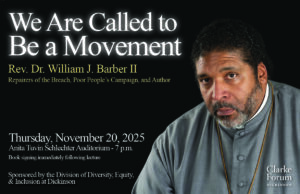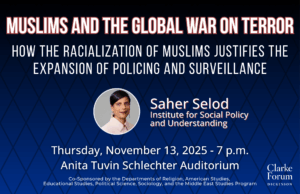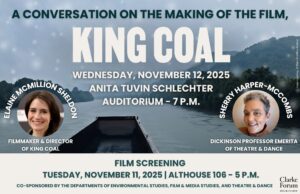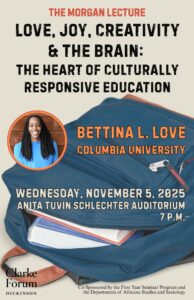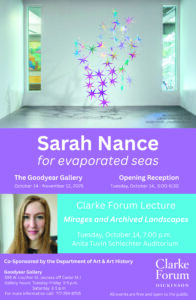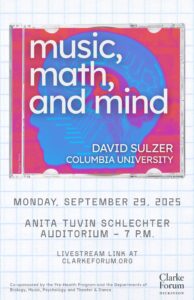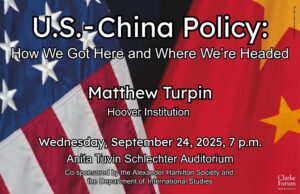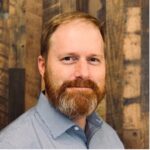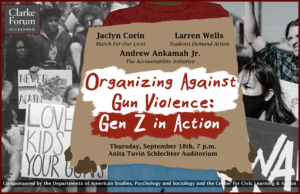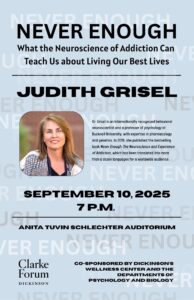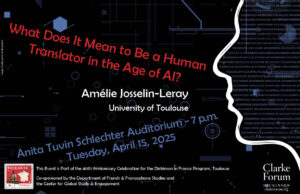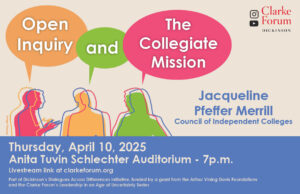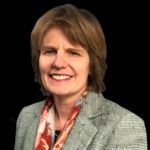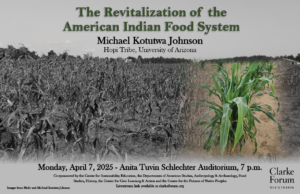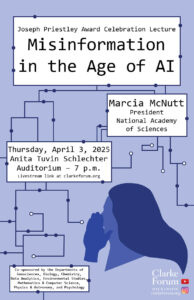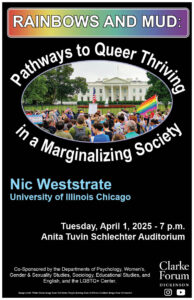While we work on our programming for the fall semester, there are a few ways to stay connected to the Clarke Forum. You can enjoy our content by viewing past programs and listening to guest interviews conducted by our talented student project managers.
You can also subscribe to our YouTube channel where our previous programs are available for viewing.
Snapshot of Fall 2025
Wednesday, September 10, 2025, 7 p.m.
Never Enough: What the Neuroscience of Addiction Can Teach Us About Living Our Best Lives
Judith Grisel, Bucknell University
Thursday, September 18, 2025, 7 p.m.
Student-Initiated Program
Organizing Against Gun Violence: Gen Z in Action
Andrew Ankamah Jr., The Accountability Initiative
Jaclyn Corin, March for Our Lives
Larren Wells, Students Demand Action, University of Pittsburgh
Monday, September 29, 2025, 7 p.m.
Student-Initiated Program
Music, Math, and Mind
David Sulzer, Columbia University
Tuesday, October 14, 2025, 7 p.m.
Mirages and Archived Landscapes
Sarah Nance, Binghamton University
Wednesday, November 5, 2025, 7 p.m.
The Morgan Lecture
Love, Joy, Creativity & the Brain: The Heart of Culturally Responsive Education
Bettina L. Love, Columbia University
Tuesday, November 11, 2025, 5 p.m.
Film Screening of King Coal
Wednesday, November 12, 2025, 7 p.m.
A Conversation on Read more

